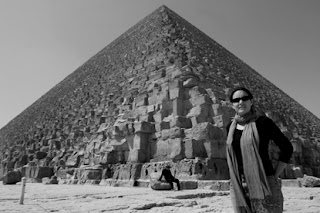Can hope maintain peace?
Is it possible for the Tibetan people to initiate and maintain the last peaceful struggle to achieve autonomy to show that it can be done? And if such a goal is unattainable through non-violence, then is peace throughout the rest of the world merely an unattainable objective? Is mankind, as a whole, unable to accept the spiritual implications and requirements of non-violence? Can man simply not accept that peace is achievable through diplomacy and that profiting off of the deaths of others is not a viable solution to the evolution of mankind? Or does war and peace truly boil down to the pursual of commodities and natural resources coupled with the profiting from military mobilization and the peace-making process? Is war hidden behind the shroud of freedom and democracy for everyone whilst the true motivation for invasion is the commandeering of monetary gain and positions of power?
Historically, states have not bothered to hide the fact that they were invading to commandeer the resources of another. Today, states invade the sovereignty of another in order to retain the natural commodities desired by the aggressor and the intention is hidden beneath liberation and protection from dictatorships and autocratic regimes. This is acceptable to the general public, one can easily digest the notion of spreading the desirable conditions of human existence, opportunity, freedom, and the pursuit of further inalienable rights, but the travesty lies in the easy acceptance of a veiled truths- hidden at times by various avenues of media; a deceit that kills innocents and destroys the cultural strands woven over centuries of time. Are we so blind as to not see the tragedy that our own consumption and desires for material wealth bring to other societies? Or is that consumption merely the end product, or means of modernization and can that consumption help build poorer nations into a status of development that becomes self-sustaining? If that is the case, then are we as a society ready to embrace and accept the means of modernization and development through the spreading of consumption of cheap material goods and when this type of sustenance reaches a capacity breaking point (for truly, there is only so much physical space in this earth for cheap Chinese goods) and the resources needed for such production come at the cost of human lives and cultural heritages, will society accept that violence and war will be used to attain the power and control over such resources?
When does non-violence become as detrimental to a society as violence? Is the slow deterioration of a population who've existed for thousands of years an acceptable bi-product of pacifism or would the direct and indirect harm to non-combatants in a violent conflict situation be an acceptable outcome of a people's struggle to regain freedom, particularly if the autonomy they seek is of a questionable nature in the international community? If so, what constitutes the boundaries of acceptable collateral damage—and can cultural identity and heritage be considered under the definition of collateral damage, or does that merely apply to human lives and the ability to pursue the basic rights of life, such as breathing, shelter and eating? Is cultural identity quantified in the definitions that justify violent action and the situations for which war may be pursued? Or is it merely a secondary element to the harming of non-combatants? Yet, what if that cultural identity is the element which defines the non-combatant, that keeps the population of civilians alive, or is that merely overstating the relevance of cultural identity to a population of people, particularly in the era of modernization and globalization?
Is it better to whither slowly or expedite the demise in attempting to save what no longer exists?
Wednesday, July 05, 2006
Subscribe to:
Post Comments (Atom)


No comments:
Post a Comment